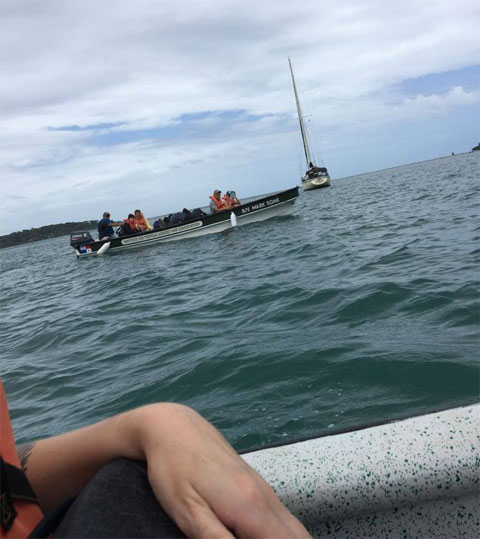
OHIO students on their way to the Institute of Tropical Ecology and Conservation, only accessible by boat.
By Becca Wagenknecht ’21
B.S. Environmental and Plant Biology, Ohio University
On March 7, 2020, 15 other undergraduates and I traveled to Bocas Del Toro, Panama on a university-sponsored program—Panama: Tropical Biology—to study the plant and animal diversity in the tropical rainforest. For a week we stayed at an off-grid field station on a small island off the east coast of Panama.
From the moment we touched down in Bocas, I was amazed by the immense amount of biodiversity and the intense sun beating down on us. We made our way from the colorful and lively Bocas town to the Institute of Tropical Ecology and Conservation, where we would be staying. The station is only accessible by boat, so we crammed into a motor boat and headed through the bay, admiring the clear blue waters, and the dark green curtain of the rainforest.
ITEC is almost entirely off the grid. Rainwater is collected and stored in massive tanks to be used for showering and washing dishes. The electricity was generated at the station and only turned on when food was being prepared in the kitchen, and all food scraps were composted. There was no air conditioning, but the screen windows allowed the cool night air into the dorms.
Going into this trip I feared missing these luxuries I am so accustomed to in the States, but I grew to love being away from the constant connection of the internet.
When we arrived at the station, we headed out into the forest led by field station professor Dr. Pete Lahanas. Every step through the forest revealed something new to see and learn—brightly colored tree frogs the size of a fingernail, howler monkeys roaring in the distance, enormous monsteras climbing the massive kapok trees, and so much more. The hike lasted more than three hours, but it seemed to fly by as we immersed ourselves into learning as much as we possibly could.
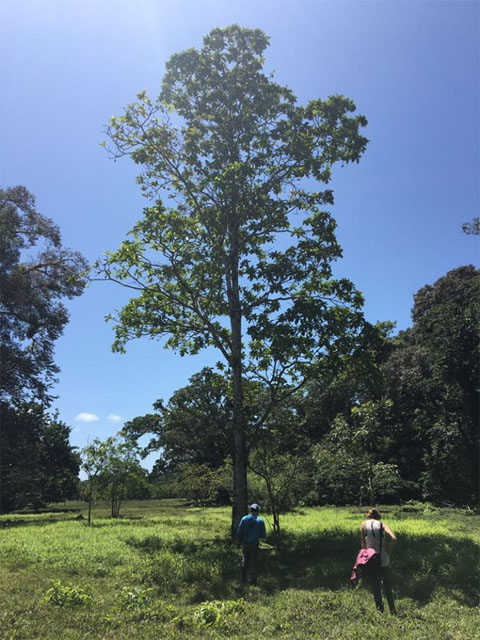
The fruits of the Jagua tree have oxidizing compounds that stain the skin for weeks. It is often used to create temporary tattoos.
We had the opportunity to crawl through a bat cave feeling cool wafts of air as the bats flew inches from our faces.
We snorkeled above a coral reef, spotting star fish, sea cucumbers and even a nurse shark.
We were given a lesson in tree climbing and scaled nearly 100 feet up a tree, allowing us to observe the rich life of the canopy.
We also got to visit an organic coffee farm where observed how cocoa seeds are turned into cocoa powder, taste testing the beans and the fruit every step of the way.
I am extremely grateful that I was able to go on this life changing trip. Tt was my first time traveling out of country, and I couldn’t have picked a better place.
I’m also incredibly thankful for being with such a great group of people that I quickly became friends with. Everyone had their own scientific specialty, making group discussions fascinating and creating a great environment for learning about topics I otherwise wouldn’t have encountered in my regular courses at Ohio University.
I loved the tropics and was inspired by the natural community as every organism in the forest operated together. I loved the tropics, and I hope to return one day to perform my own research.


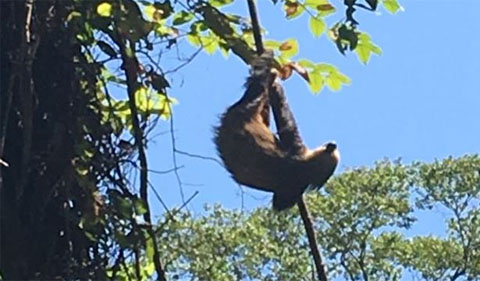
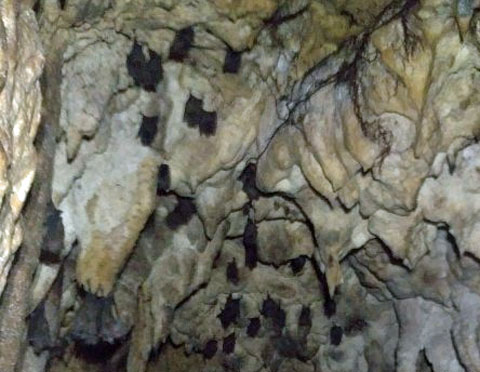
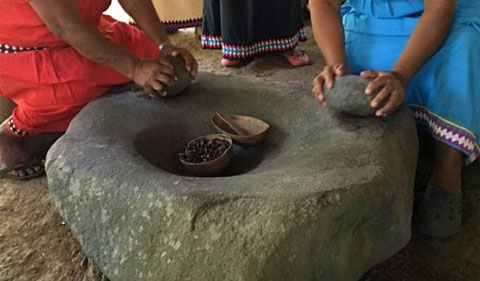
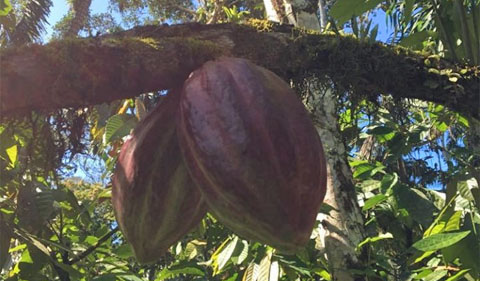

















Comments